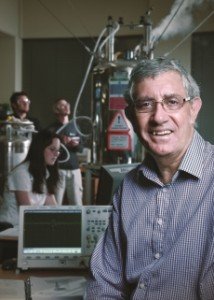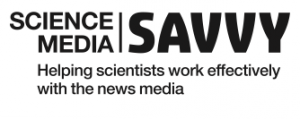At the recent Transit of Venus forum held in Gisborne the engaging and energetic discussions were overshadowed by one thing only – the absence of Professor Sir Paul Callaghan, who conceived the forum.

Sir Paul passed away in March, leaving a huge gap in New Zealand science as someone who could comment with authority on the big, science-related issues in an engaging way that had cut-through with New Zealanders. The lectures Sir Paul gave in the last years of his life were incredibly influential and embodied everything that made him such a great communicator – check them out on Youtube.
One thing became clear to me in Gisborne and has been reinforced by my interactions with scientists in our work at the Science Media Centre: most scientists fundamentally feel a desire and obligation to communicate their science and to contribute to the wider scientific discourse that is underway in society.
A large number of them do a great job in stepping forward when their expertise is needed and we take our hat off to those scientists we’ve worked with over the years and the members of our Scientific Advisory Panel who give their time and expertise so generously in the name of improving understanding of science.
A larger number of scientists want to do more science communication but for numerous reasons feel limited in their ability to do so. They may feel ill-prepared for dealing with journalists or work in areas of science that are controversial and therefore incite strong reaction in the public sphere. Their institution may be involved in commercial work, which limits what they can say, or they may feel self-conscious among their peers for “hogging the limelight”.
All of those things are very real pressures, but they are not insurmountable and the benefits to both the scientists and society of engaging in effective science communication far outweigh the potential pitfalls – we have numerous examples from the SMC to prove this is true.
The bottom line is that scientists need greater support if they are to be expected to step up and contribute much-needed scientific input to the discussions society needs to have.
A helping hand for scientists
 That’s why we are kicking off Science Media Savvy, a nationwide series of science media training workshops that are suitable for scientists at any stage of their career.
That’s why we are kicking off Science Media Savvy, a nationwide series of science media training workshops that are suitable for scientists at any stage of their career.
The workshops are not designed to replace the types of media training activities going on inside scientific institutions or companies engaged in research and development, but to offer scientists the opportunity to build their confidence, gain a better understanding of the changing needs of the media, and explore more effective ways of communicating their science in general.
We will be offering two day workshops for scientists around the country, starting with Christchurch, where our workshop will feature seasoned media trainer and former journalist Michael Brown of Skillset NZ and the Science Media Centre’s media advisors. The workshop is supported by and has been developed in consultation with Dr. Mark Quigley, geology lecturer at the University of Canterbury and the winner of the 2011 Prime Minister’s Science Media Communication Prize for his extensive work with the media around the Canterbury earthquakes. We are delighted that Dr. Quigley will be sponsoring the Christchurch workshop allowing us to offer this opportunity to scientists in the Canterbury region free of charge – see details on how to apply for the workshop.
The workshops
Our workshops feature a maximum of 12 scientists each and comprise a mix of practical exercises, interaction with working journalists and knowledge building sessions about the media. Areas covered include:
- Newsroom tour and Q&A with a panel of print and broadcast journalists
- Inspiration from examples of science done well in the media
- Orientation to the changing media landscape
- Practical exercises and feedback
- Video-recorded practice interviews
- Opportunities in new and social media
- Advice on handling controversy, uncertainty and risk
- Tips for preparing for print and broadcast media
- ‘Pitch’ session to local and national media — an opportunity to put new skills to the test
Ongoing support
The Science Media Centre has become the go-to place for journalists seeking scientific experts and access to research and scientists who have gone through Science Media Savvy will receive ongoing support from the SMC, which is well-positioned to generated media opportunities for them as well as opportunities to engage in new media opportunities via the Sciblogs network which we founded and host.
In conjunction with our colleagues at the Australian Science Media Centre, we will also be making available online materials in the form of short refresher videos and tip-sheets that Science Media Savvy attendees will be able to access.
We are looking forward to working with scientists keen to improve their science communication skills. If you are interested in attending these workshops, we’d love to hear from you as we put our schedule together for the rest of the country.